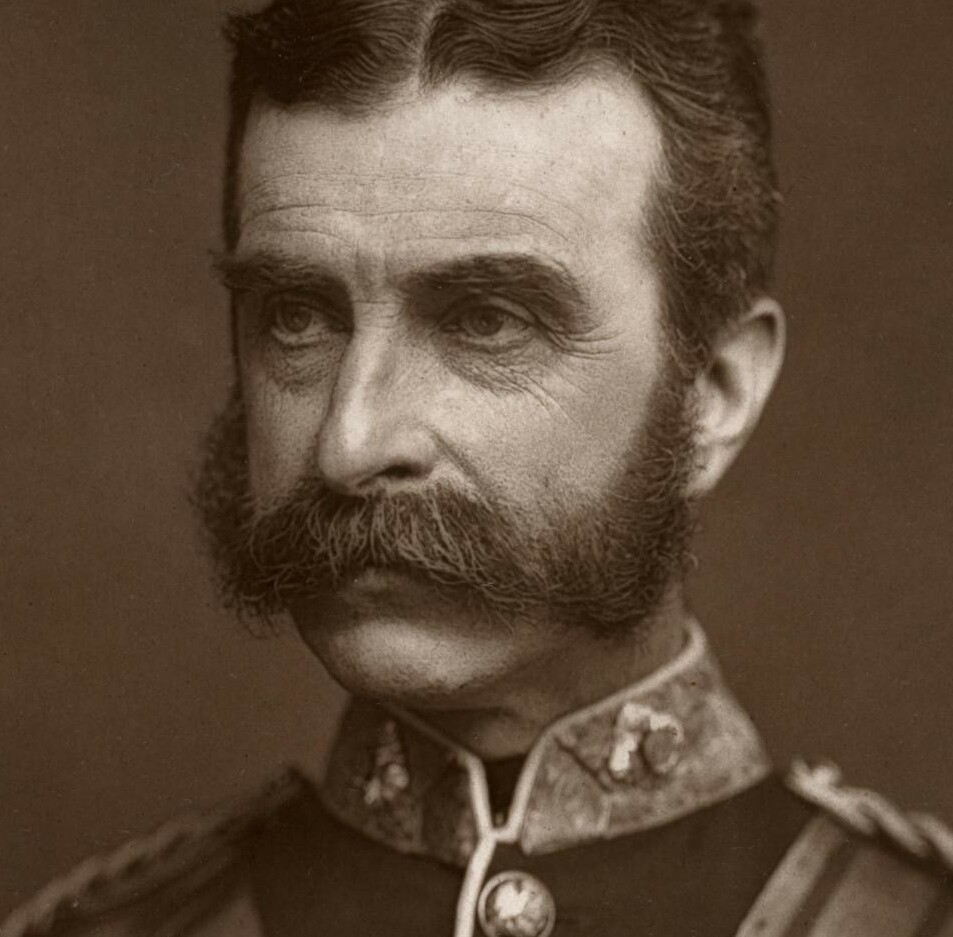Frederic Thesiger, 2nd Baron Chelmsford
| The Lord Chelmsford | |
|---|---|

Frederic Thesiger, c.1870
|
|
| Born |
31 May 1827 Derby, England |
| Died | 9 April 1905 (aged 77) Westminster, London |
| Allegiance |
|
| Service/branch |
|
| Years of service | 1844–1905 |
| Rank | General |
| Battles/wars |
Crimean War Indian Rebellion of 1857 1868 Expedition to Abyssinia Xhosa Wars Anglo-Zulu War |
| Awards |
Knight Grand Cross of the Order of the Bath Knight Grand Cross of the Royal Victorian Order Mentioned in Despatches Order of the Medjidie (Ottoman Empire) |
| Other work |
Lieutenant of the Tower of London Colonel of Sherwood Foresters Colonel of the 2nd Regiment of Life Guards |
Frederic Augustus Thesiger, 2nd Baron Chelmsford GCB, GCVO (31 May 1827 – 9 April 1905) was a British imperial general who came to prominence during the Anglo-Zulu War, when an expeditionary force under his command suffered one of the severest defeats in battle by native tribesmen in the history of the British Empire at the Battle of Isandlwana in 1879. He went on to defeat the Zulu Kingdom at the subsequent Battle of Ulundi.
Frederic Augustus Thesiger was born 31 May 1827, the son of Frederic Thesiger, a lawyer who later became Lord Chancellor and was created Baron Chelmsford. Thesiger was educated at Eton College.
He wished to pursue a military career. In 1844, after unsuccessfully trying to obtain a place in the Grenadier Guards, he purchased a commission in the Rifle Brigade. He served (1845) with the Rifles in Halifax, Nova Scotia before purchasing an exchange (November 1845) into the Grenadiers as Ensign and Lieutenant. He was promoted Lieutenant and Captain in 1850, and became aide-de-camp (1852) to the Lord Lieutenant of Ireland, Lord Eglinton, and then to the Commander-in-Chief in Ireland, Sir Edward Blakeney, from 1853 to 1854.
...
Wikipedia
